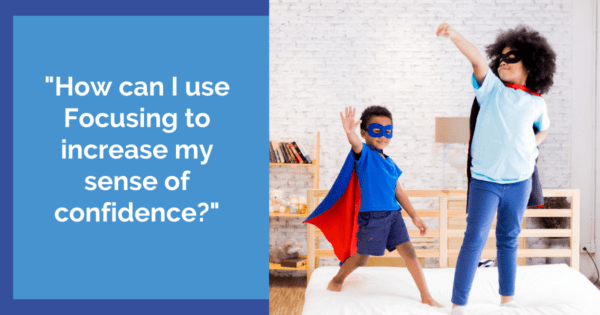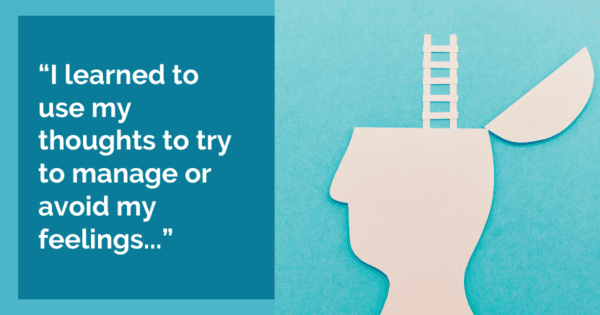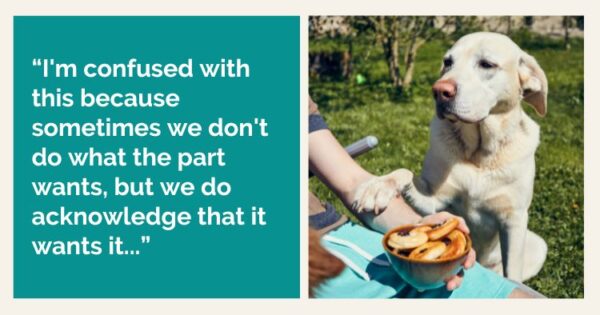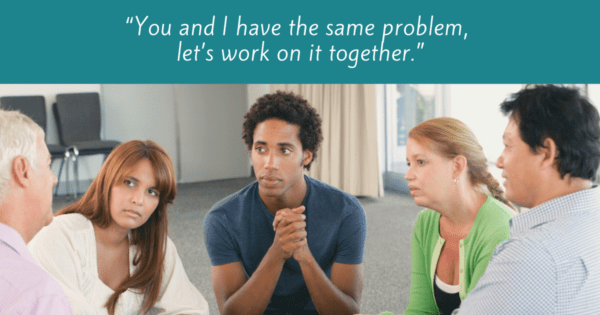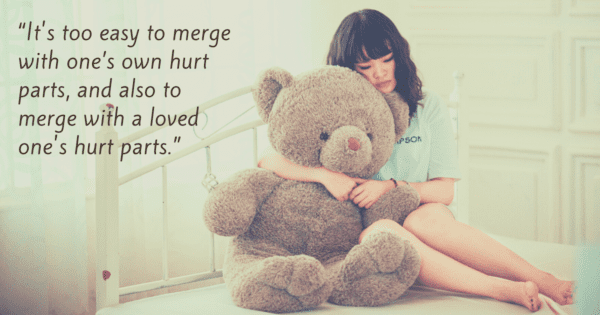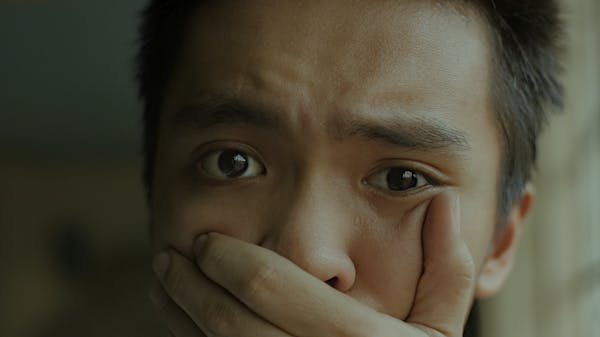“I take on the feelings of the person I’m Focusing with.”
Vonna writes: “My Focusing is going OK, but I have a question about Focusing partnership. When the person I’m companioning has strong feelings, I start to have those same feelings in my own body. Yesterday I was with someone who was Focusing with a tight squeezing feeling in her chest, and I started feeling that in MY chest.
“Is this supposed to be happening? I find it a bit scary.”
Dear Vonna,
You sound like a very sensitive, empathic person. But no, feeling the feelings of the other person is not what is ideally supposed to happen when you are the Companion.
It is enough for ONE person to be feeling those feelings: the Focuser.
The job of the Companion is first of all to be present. Even before saying a word, you give a safe space to the Focuser, because you are sitting there, present in yourself. Feeling your own body, aware of what you are touching and how you are breathing… with your open, curious attention on the Focuser.
In that space, the Focuser can pause, allow a felt sense to form, and begin to describe it. That’s the job of the Focuser. You the Companion don’t need to say anything unless the Focuser invites you to. Your Presence helps create the space where the Focuser can sense and explore their own inner relationship.
So what if you start to feel the feelings that the Focuser is describing? One thing that can really help with this is to reflect the Focuser’s words back to them using Presence language: “You’re sensing…” Like this:
F: “There’s a tight squeezing feeling in my chest.”
C: “You’re sensing a tight squeezing feeling in your chest.”
As you say “you’re sensing,” pay attention to the literal meaning of your words. The other person is sensing the feeling… not you. “Your chest”– not mine. Saying out loud what the person is saying — and paying attention to the words you are using — can help you place the feelings where they belong: in the other person.
The lessons we learned about other people’s feelings
Some of us come from family backgrounds where we “had” to feel other people’s feelings for them. My mother, for example, didn’t allow herself to feel certain feelings like anger, and I later found out that I had taken those feelings into parts of my own body — for her. What a relief it was to find my own Self-in-Presence and release any feelings that were not my own.
Or we may have gotten the message that the way to show you care about someone is to have the same feelings that they have. If your loved one is sad, you have to be sad too. In my view, this is a version of co-dependence. There is no reason that healthy love should include having the same feelings as your loved ones.
So if you find yourself taking on the feelings of other people in your life, whether they are your Focusing partners or your friends and family, bring that question into your next Focusing session. When it’s your turn to be the Focuser, invite “the part of me that takes on other people’s feelings.” You’ll be able to explore what that is for you… and find out what that part of you has been trying to do for you.
As you listen gently to the part of you that takes on other people’s feelings, it will find its own way forward into change… and that’s my favorite ordinary magic.

